News
National Geographic’s ‘MARS’ – Takes Us Beyond Our Wildest Dreams!

Ever look up at the night sky and wonder what else is out there for us? Ever imagine leaving the comfort of our home planet and traveling somewhere so far away, and calling this new place home? Well, all of that has been unraveling to become a reality, and people will soon leave the comfort of their home planet to colonize on the planet Mars. Traveling to Mars has captured our shared imagination and the top minds in science are currently working out the plan, the plan that will change our perception of life and world as we know it. “The most remarkable thing is that we have had the technology to do this for at least thirty years, says Stephen Petranek, Author of How We Will Live On Mars.” Petranek further explains that “Exploration is in our DNA. To survive, we must reach beyond our home planet.”
MARS is set both in the future and in the present day. With fantastic storytelling and the combination of documentary pieces along with scripted drama the series will redefine television and cater to all ages and interests. This series will leave you on the edge of your couch, blown away, wondering, when will I go to Mars? MARS will open up the floodgates for a new generation of minds to become interested in space exploration and launch the careers of many, while an older generation will re-experience vivid dreams of becoming astronauts as they once did as children. This six-part event will tell an exhilarating tale of a fictitious mission to Mars in 2033. The series was filmed earlier this year in Budapest and Morocco. Brought forth for the documentary portion of this series were the globe’s most prominent minds to be interviewed on camera, that had never been conducted, until now. MARS will premiere in the U.S. and internationally in 170 countries and broadcast in 45 languages. Executive Produced by Brian Grazer and Ron Howard, comes a well-massaged series that will explore the essential ingredients to the arrival and the landing on this red planet that will be known as home for some.
Check out the MARS trailers, picture gallery and exclusive interview below.
MARS Trailer #1
MARS Trailer #2

BUDAPEST – Production of the scripted portion of MARS.
(Photo credit: National Geographic Channels/Robert Viglasky)

BUDAPEST – Production of the scripted portion of MARS.
(Photo credit: National Geographic Channels/Robert Viglasky)

Sammi Rotibi as Robert Foucault a Nigerian mechanical engineer and roboticist. The global event series MARS premieres November 14 at 8/9c in the U.S. and internationally Sunday, November 13 on the National Geographic Channel. (Photo credit: National Geographic Channels/Robert Viglasky)

BUDAPEST – Production of the scripted portion of MARS.
(Photo credit: National Geographic Channels/Robert Viglasky)

Ben Cotton as Ben Sawyer the American mission commander and systems engineer on the Daedalus. The global event series MARS premieres November 14 at 8/9c in the U.S. and internationally Sunday, November 13 on the National Geographic Channel. (Photo credit: National Geographic Channels/Robert Viglasky)
Interviews
Actor Ben Cotton – Ben Sawyer
Actor Ben Cotton portrays a mission commander and systems engineer in the new National Geographic mini-series MARS. Sawyer is an experienced astronaut who has flown for both NASA and private space companies. A leader and a dedicated man, the Mars mission has become the focal point of his career. iHorror was graciously given the opportunity to speak to Ben Cotton about his character Ben and his experiences acting in MARS.
iHorror: The structure of this series caught my attention. You have the dram-doc, the drama piece meshed in with the scientific part. How did you come upon this role and what did you find most intriguing?
Ben Cotton: Well, I Came Upon it the way you do most auditions. It got sent to me, and I looked it over. I recorded and audition and sent it in, and that was pretty much it. It was exciting of course because looking over the pages you’ve got National Geographic with Imagine; you’ve got Brian Grazer and Ron Howard. On top of that I had just watched some documentaries from Radical Entertainment, so all of it really spelled out an interesting looking thing for me. So that is how it happened and came to me, had a couple of meetings about it and away we went! To me what was intriguing about the whole thing was learning something new, the space shuttle was always an exciting fantasy to explore. You know everything that is in the show is based on fact. Most of which I didn’t know. I did not know that we had the technology in place to go to MARS in the late sixties, but I had no idea that the rockets that we use today were similar to the rockets used at that time. I did n’t know that we could even survive on Mars, I am aware that we had been doing research with Rovers, but did not know we would be sending people out there as soon as they are. Elon Musk has projected that we can make it there by 2025 or 2027.
iH: That is amazing! That is just right around the corner. I think a lot of people don’t know that. This is just like something out of a movie.
BC: Yeah, once we started shooting it is like anything. Someone points something out to you, and it is everywhere you look. I started seeing it different places and just maybe two months ago Barack Obama started talking about going to Mars. When it comes up on a level of that size, you think, “oh wow this is something real big! This is defiantly coming back into the forefront of people’s perception of what is possible.” Hopefully, this show will help nurture that sense of wonder and excitement and make it feel like a possibility for people, because as far as I can tell it is happening. There is no stopping it now.
iH: That is awesome, I think that you are right the show will ultimately create that excitement for the space program and space in general. Over the years it seems like we have all lost that. I can remember growing up and wanting to be an astronaut, that was almost every little boy’s fantasy. It seems like that is all gone now.
BC: It has slowed down. I think that the wonder and excitement that is felt when you are a kid, I don’t think that it has ever gone away, our eye has just been redirected from it for a little while. For a long time, we had the space shuttle program which was a low orbit vessel, never intended to go much further than it did. We stopped paying attention to the possibility of even making it to Mars. I think that it is an exciting time because we get to reawaken that sense of adventure.
iH: Definitely something for our new generation to grasp. It is unimaginable for me to think that our children will be going to Mars someday soon.
BC: Well, that is exactly it. This is one thing that excites me about this is. Kids can watch this show; it is a little intense, but the kids that would watch it now would be the ones that are primed to go in 2033. So that is pretty exciting, they might watch this and go into an area of science that they may not have been excited to go into before. I think the timing is really cool.
iH: How was is for you to play a character that is fictional in a sense but could be a real character in the year 2033 flying to Mars?
BC: Well, I don’t know if it presented any different challenge. Personally, I try to look at every character that I play as not fictitious. Unless maybe it is a Zombie or Vampire {Laughs} Just the research that I was able to do and the knowledge given, you know we spent a lot of time with Dr. Mae Jemison who is a former astronaut with NASA. She was the first African-American Woman in Space; she holds nine PhDs’.
iH: Wow!
BC: Yeah, I know right? We got to spend a lot of time with her and get to pick her brain and ask questions. She taught all different kinds of things on what it would be like to be an astronaut. Stuff that helped me look at the character as a real human being, a fully developed character, it was great!
iH: When you were filming this series what the most challenging part?
BC: I would say the most challenging part would have been the heat. We shot all of the exterior stuff in Morocco in July. There were days when it was 125 degrees, and that was before the space suit went on. That was something that was certainly challenging. With that kind of heat, you feel like you are going to lose your mind a little bit. It was wonderful that nobody did, but it was HOT! We managed to get through it pretty good. Even at that, it was a wonderful experience. They took very good care of us; they cooled us down whenever they could.
We watched countless hours of videos with astronauts and that coupled with a meeting with producers, writers, and directors. It was nice because we had the opportunity to help add a little bit of info into the script. Changing items around here and there. It was nice because any changes that were made were ran by the experts to make sure everything that we did was factual. One of the producers refers to it as science factual versus science fiction. They have managed to do that, and it is very exciting.
iH: That is great that they were able to allow that freedom and input from you guys because a lot of times with these projects there is no wiggle room, it is what it is. Did the writing come from Stephen Petranek’s book, How We Will Live On Mars?
BC: I think that was definitely the genesis of the project and the inspiration of the project. Of course, his book isn’t fiction and the story we are telling did not come directly from that. All of the interview portions that you see were completed first. They built most of the documentary part of the show first and then from those interviews they created a story. The story was built around the facts. This allowed us to keep everything very factual.
iH: That is very clever, and it continued to hold my attention. I think that is really what this series has in its favor. With a straightforward documentary, you tend to lose a few people. With this, I believe that you will gain an audience that will stick with the show from beginning to end. What projects do you have coming up?
BC: There is a show coming out on NBC called the Arrangement that I just finished doing a few episodes of. I just did a few episodes of a show called Rogue. Some Canadian Independent Films are coming out down the road, so things are moving. I am having a real time; that is for sure.
iH: Excellent! Thank you so much for speaking with me today. It was great receiving your insight on this incredible production. Best of luck on your future projects and we hope to speak to you again real soon!

The Daedalus on Mars. The global event series MARS premieres on the National Geographic Channel November 14.
(courtesy of Framestore)
Interview #2
Stephen Petranek – Author
Stephen Petranek is a writer and an editor of Breakthrough Technology Alert. Petranek spoke at the TED conference in 2002 and for the second time in 2016. His book How We’ll Live on Mars published this past year. Petranek’s career has spanned over forty years and some of his previous work includes editor-in-chief of Discover Magazine and the editor of the Washington Post’s Magazine.
iH: As a child, I had always heard, “Yeah we might be able to go to Mars someday, but you’ll not see it in your lifetime,” and now this is becoming a reality. This is quite stunning!
Stephen Petranek: The most remarkable thing is that we have had the technology to do this for at least thirty years. At the end of the Apollo program Wernher von Braun was stalking the walls of Congress and knocking on Richard Nixon’s door and saying, “We go to Mars next,” and Nixon chose to build the space shuttle which was basically a disaster. If we just had a fourth of the money that we spent on the space shuttle they could have been on MARS in the middle eighties. There was a proposal for a landing back in 1982, but there were things he did not know at that point. He had so many backups for everything that could go wrong that I think we easily could have had humans on Mars thirty years ago if we had the will to do it.
iH: I just can’t even imagine now where we would be now if we had done that.
SP: Well, yeah because technology is funny. It stays static unless it has a motivating force behind it and about 90% of the technology that makes our lives better right now comes out of World War II and the Apollo program, most people do not realize that. From the fabrics to the clothing that they are wearing to the bristles in their toothbrush to the computer that they carry in their pockets that they call a smartphone are all derivative from the Apollo program. It was really quite amazing what we got out of that, and the technological push behind going to MARS will not only make our lives better, but I think as we try to deal with the problems living on MARS I think that we will actually develop technologies that will make Earth a much cleaner place.
iH: What do you think the biggest technological challenge will be as it relates to living on Mars?
SP: Well, there is no technological challenge that we cannot overcome very easily, although many are expensive. You need food, shelter, clothing, and water to live on Earth. And you need food, shelter, clothing, water, and oxygen to live on MARS. NASA has invented a machine that is kind of like a reverse fuel cell and it can strip the carbon off a CO2 atmosphere on MARS and can produce pure oxygen. That problem gets solved. The problem that all the water on MARS is frozen and in many ways is hard to get at because it is frozen. This is solved by a simple machine that is kind of like a commercial dehumidifier that will suck moisture out of the Martian atmosphere, and it turns out the Martian atmosphere, and it turns out the Martian atmosphere is one hundred percent humid fifty percent of the time every night, so there is plenty of water. Everything that we need to do this with is there. The biggest challenge is dealing with radiation. Both solar radiation and cosmic radiation. On Earth, we have a magnetosphere that protects from cosmic rays and we have a very thick atmosphere that protects us from solar radiation and on Mars you have neither. And you’re going to have to live underground, or you’re going to have to live in habitats that have walls 16 feet thick, and everything that we do on Mars is going to have to be resourced on Mars. We are going to have to make bricks literally on MARS to build our buildings going to need incrediablly thick walls on those buildings or we are going to mostly need to live underground perhaps in lava tombs, things like that.
There are no significant serious technological problems with living successfully on MARS. It is a different kind of lifestyle. The planet is so cold and so dry it is more like living in Antarctica because the atmosphere is very thin there is only one 100th of Earth’s atmosphere doesn’t have the push against it. For example, a polar wind they would have in Antarctica. So even though it is cold there, you do not have these forceful winds blowing around it. A dark night in the south pole in the middle of the winter is worse than almost any conceivable weather on Mars. There are places on Earth where we have experienced these similar things and dealt with them very well.
iH: That does sound achievable over time.
SP: Achievable now. {Laughs}
iH: {Laughs} Yes, you are right. How is communication from MARS to Earth?
SP: Absolutely pathetic. We would mostly be relying on radio waves it would be fantastic if they could develop some type of light signaling device. The problem with even a very good, smart, fine laser is that the beam expands out too quickly, so light communication between Earth and Mars is a technological challenge. So we would mostly be relying on radio waves. So that means we would not be able to carry on typical conversations like you and I are having. I would have to send you something that is essentially like a letter, a video letter. I might video myself and talk into a TV screen that would record what I am trying to say and then I would send it off and depending on where Earth and MARS are in their orbit it could take anywhere from ten minutes to twenty-four minutes for the message just to reach Earth. So if you send a little video letter to a loved one on Earth and it took twenty minutes to get there, and they would send a little video letter back it would easily take an hour with the exchange of information. This one of the reasons why it makes more sense for human beings to go to Mars instead of mechanical devices they do not have to rely on instructions from Earth.
iH: That is very interesting; I actually thought it would take longer.
SP: No, about twenty-four minutes would be the worst case scenario. A lot of times it would be about a ten to fifteen minutes
iH: That is pretty awesome; I actually thought it would take days {laughs}
SP: No, the problem is once you are on MARS there is no emergency vehicle that can come to your rescue if you get into trouble. You are on your own when you get there anyways. So the communications problem other from a comfort factor being able to kind of talk to people on Earth, on the home planet is irrelevant, because the communications that are going to be important are the people that are around you when you are trying to build a civilization there.
iH: That is very true! Well, thank you so much for speaking with me today. Your expertise is greatly appreciated. Check out Stephen Petranek’s book on the read planet, “How We Will Live On Mars” by clicking here.
*****
For more information on National Geographic’s MARS. check out the website by clicking here.
Love Science? Check out our Voyage of Time Review by clicking here.
-ABOUT THE AUTHOR-
Ryan T. Cusick is a writer for ihorror.com and very much enjoys conversation and writing about anything within the horror genre. Horror first sparked his interest after watching the original, The Amityville Horror when he was the tender age of three. Ryan lives in California with his wife and Eleven-year-old daughter, who is also expressing interest in the horror genre. Ryan recently received his Master’s Degree in Psychology and has aspirations to write a novel. Ryan can be followed on Twitter @Nytmare112
'Civil War' Review: Is It Worth Watching?
Follow our new YouTube channel "Mysteries and Movies" here.

Movies
‘Longlegs’ Creepy “Part 2” Teaser Appears on Instagram
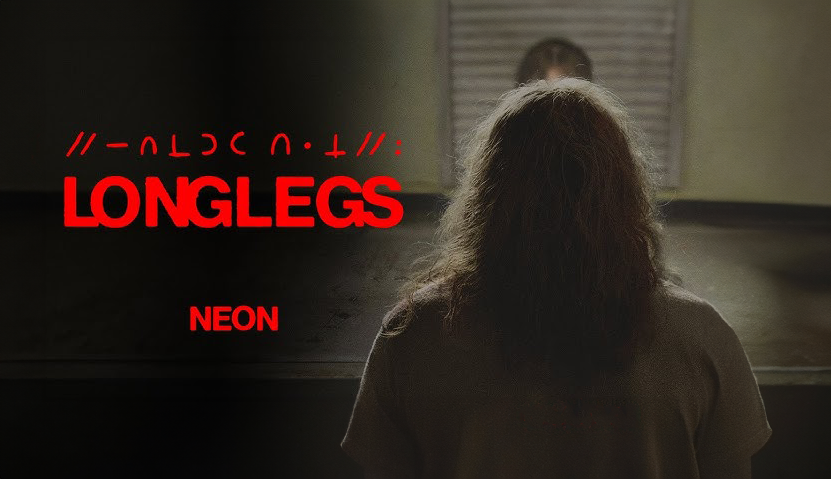
Neon Films released an Insta-teaser for their horror film Longlegs today. Titled Dirty: Part 2, the clip only furthers the mystery of what we are in for when this movie is finally released on July 12.
The official logline is: FBI Agent Lee Harker is assigned to an unsolved serial killer case that takes unexpected turns, revealing evidence of the occult. Harker discovers a personal connection to the killer and must stop him before he strikes again.
Directed by former actor Oz Perkins who also gave us The Blackcoat’s Daughter and Gretel & Hansel, Longlegs is already creating buzz with its moody images and cryptic hints. The film is rated R for bloody violence, and disturbing images.
Longlegs stars Nicolas Cage, Maika Monroe, and Alicia Witt.
'Civil War' Review: Is It Worth Watching?
Follow our new YouTube channel "Mysteries and Movies" here.
News
Exclusive Sneak Peek: Eli Roth and Crypt TV’s VR Series ‘The Faceless Lady’ Episode Five
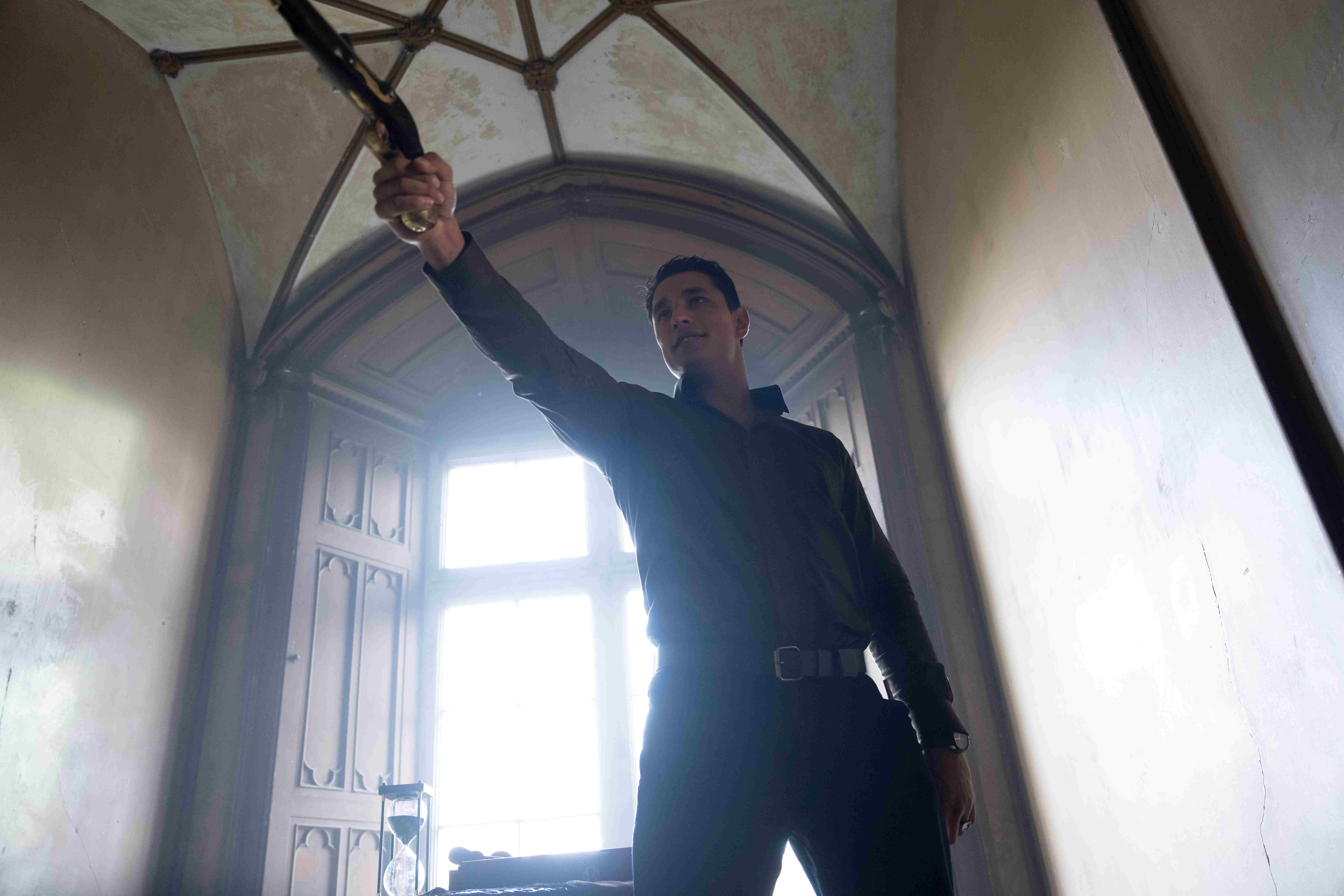
Eli Roth (Cabin Fever) and Crypt TV are knocking it out of the park with their new VR show, The Faceless Lady. For those unaware, this is the first fully scripted VR horror show on the market.
Even for masters of horror like Eli Roth and Crypt TV, this is a monumental undertaking. However, if I trust anyone to change the way that we experience horror, it would be these two legends.

Ripped from the pages of Irish folklore, The Faceless Lady tells the story of a tragic spirit cursed to wander the halls of her castle for all of eternity. However, when three young couples are invited to the castle for a series of games, their fates may soon change.
So far, the story has provided horror fans with a gripping game of life or death that doesn’t look as if it will slow down in episode five. Luckily, we have an exclusive clip that may be able to satiate your appetites until the new premiere.
Airing on 4/25 at 5pmPT/8pmET, episode five follows our final three contestants in this wicked game. As the stakes are raised ever higher, will Ella be able to fully awaken her connection with Lady Margaret?
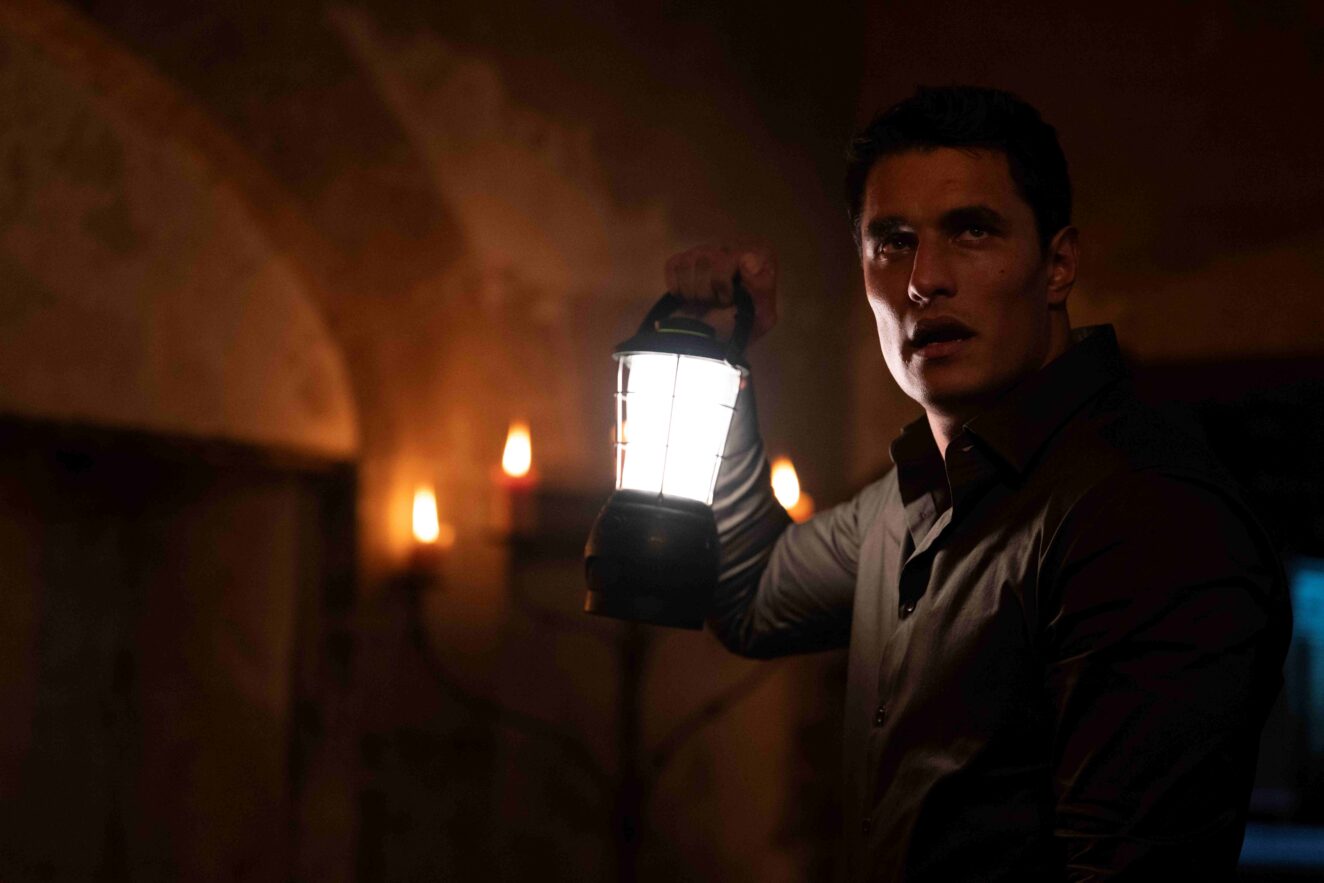
The newest episode can be found on Meta Quest TV. If you haven’t already, follow this link to subscribe to the series. Make sure to check out the new clip below.
Eli Roth Present’s THE FACELESS LADY S1E5 Clip: THE DUEL – YouTube
'Civil War' Review: Is It Worth Watching?
Follow our new YouTube channel "Mysteries and Movies" here.
News
‘Blink Twice’ Trailer Presents a Thrilling Mystery in Paradise

A new trailer for the movie formerly known as Pussy Island just dropped and it has us intrigued. Now with the more restrained title, Blink Twice, this Zoë Kravitz-directed black comedy is set to land in theaters on August 23.
The film is packed with stars including Channing Tatum, Naomi Ackie, Alia Shawkat, Simon Rex, Adria Arjona, Haley Joel Osment, Christian Slater, Kyle MacLachlan, and Geena Davis.
The trailer feels like a Benoit Blanc mystery; people are invited to a secluded location and disappear one by one, leaving one guest to figure out what is going on.
In the film, a billionaire named Slater King (Channing Tatum) invites a waitress named Frida (Naomi Ackie) to his private island, “It’s paradise. Wild nights blend into sun-soaked days and everyone’s having a great time. No one wants this trip to end, but as strange things start to happen, Frida begins to question her reality. There is something wrong with this place. She’ll have to uncover the truth if she wants to make it out of this party alive.”
'Civil War' Review: Is It Worth Watching?
Follow our new YouTube channel "Mysteries and Movies" here.
-

 News6 days ago
News6 days agoWoman Brings Corpse Into Bank To Sign Loan Papers
-

 News5 days ago
News5 days agoBrad Dourif Says He’s Retiring Except For One Important Role
-

 Strange and Unusual5 days ago
Strange and Unusual5 days agoMan Arrested for Allegedly Taking a Severed Leg From Crash Site And Eating It
-
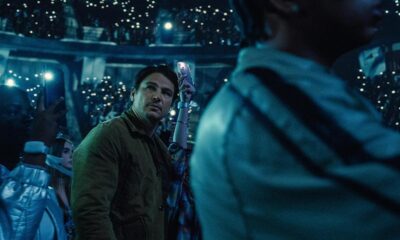
 Movies6 days ago
Movies6 days agoPart Concert, Part Horror Movie M. Night Shyamalan’s ‘Trap’ Trailer Released
-

 Movies6 days ago
Movies6 days agoAnother Creepy Spider Movie Hits Shudder This Month
-

 Movies7 days ago
Movies7 days agoRenny Harlin’s Recent Horror Movie ‘Refuge’ Releasing in U.S. This Month
-

 Editorial5 days ago
Editorial5 days ago7 Great ‘Scream’ Fan Films & Shorts Worth a Watch
-
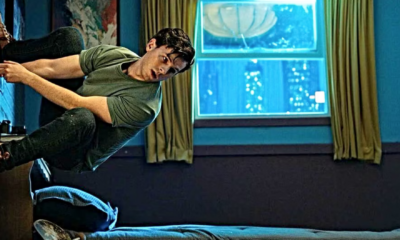
 Movies4 days ago
Movies4 days agoSpider-Man With a Cronenberg Twist in This Fan-Made Short
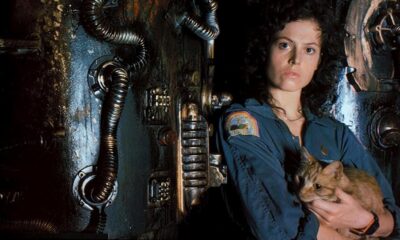


























You must be logged in to post a comment Login